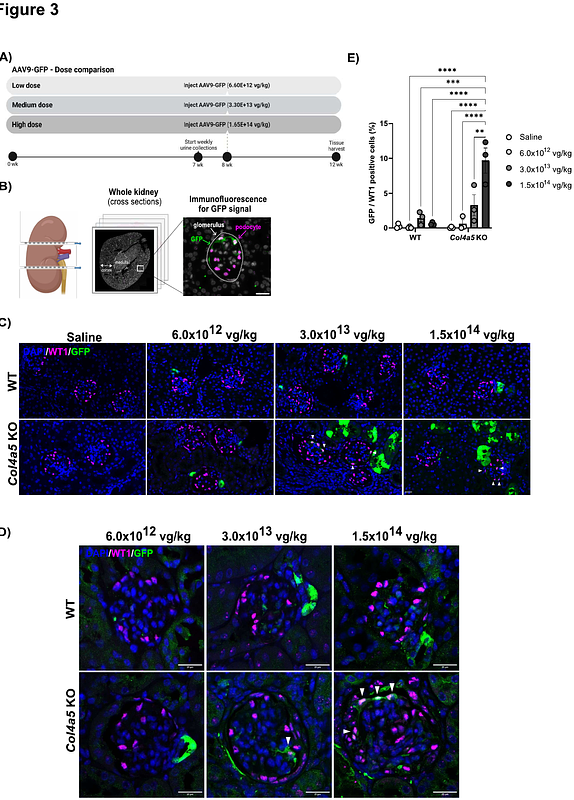Increased in vivo transduction of AAV-9 cargo in Alport podocytes

Increased in vivo transduction of AAV-9 cargo in Alport podocytes
Williams, E.; Fresquet, M.; Bolas, G.; Kaseda, S.; Goncalves, K.; Steinsapir, A.; Adamson, A. D.; Sherwood, D. R.; Lennon, R.
AbstractAlport syndrome is a rare genetic disorder characterized by progressive kidney disease, hearing loss, and eye abnormalities. Gene therapy for Alport syndrome has not yet been realized due to technical challenges, including effective transduction of target cells. In this study, we established a quantitative testing platform using podocytes in culture, ex vivo glomeruli, and a mouse model of Alport syndrome to evaluate the transduction efficacy of adeno-associated Virus-9 (AAV9) as a gene delivery vehicle. We compared transduction levels of AAV9-GFP vectors between healthy and Alport podocytes in culture, revealing that both cell types exhibited similar transduction rates. We then incubated ex vivo glomeruli with AAV9-GFP and found enhanced transduction in Alport compared to wild type podocytes. Finally in mice following a peripheral intravenous injection of AAV9-GFP we found a striking increase in transduction in Alport podocytes suggesting that the pathological environment may facilitate higher penetration of the vector. These findings underscore the potential of AAV9 for effective gene delivery in the context of Alport syndrome, providing a foundation for future therapeutic strategies aimed at correcting the underlying genetic defects.